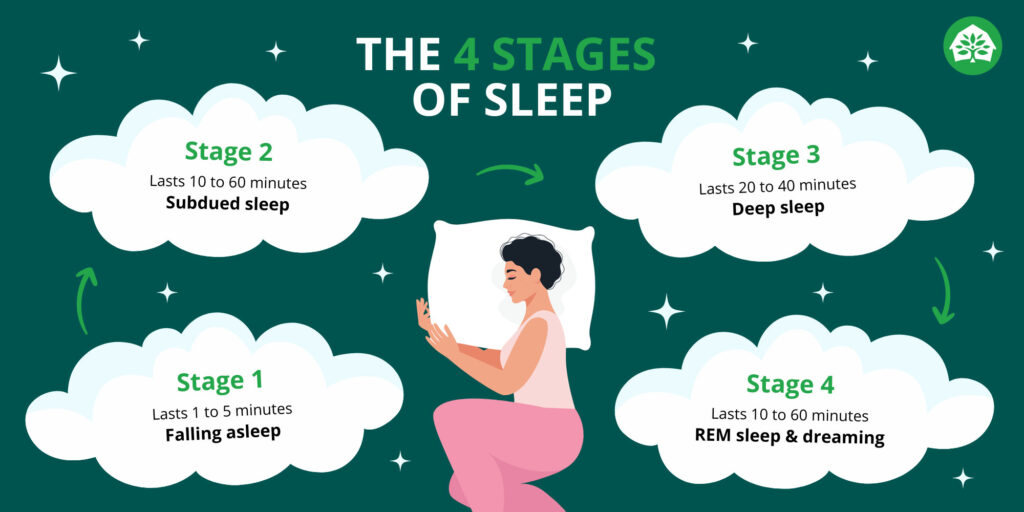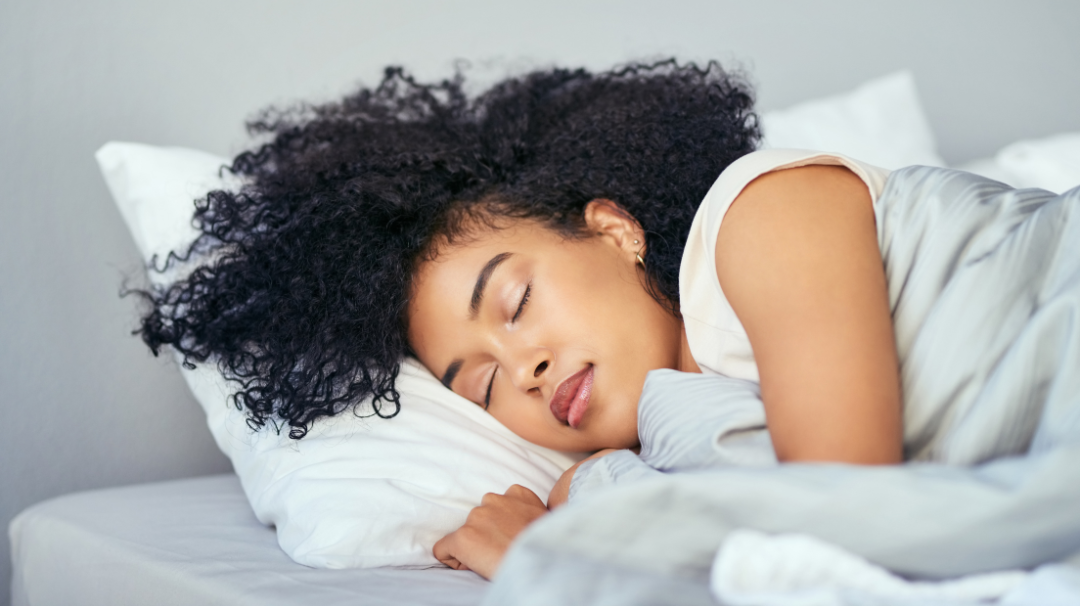Sleep and mental health are intimately connected. Poor sleep can lead to many mental health problems, including anxiety, depression, and even psychosis. On the other hand, good quality sleep is essential for maintaining good mental health. Overall, sleep is a powerful tool for prevention and treatment.

What happens during sleep?
Sleep allows the brain to consolidate and integrate information from the day, which can help improve memory and learning. Additionally, sleep helps to regulate mood and emotions. And insufficient sleep is associated with an increased risk of depression, anxiety, and irritability. Finally, during sleep, the brain flushes out harmful waste products. Allowing you to function optimally during waking hours and potentially reducing the risk of cognitive decline and neurological disorders.
Still, there is still much to be learned about how sleep works in relation to mental health and wellness. We know it affects virtually every system in the body; involving several areas of the brain that produce hormones and chemicals that regulate the sleep cycle.
Through a full night’s sleep, you will go through several sleep cycles, each of which has four stages. The first three stages of sleep are non-REM (rapid eye movement), whereas the fourth and final stage is REM sleep.

The distinction between REM and non-REM sleep is important for mental health because they have different effects on cognitive and emotional processing. During non-REM sleep, the brain consolidates memories and repairs the body, while during REM sleep, the brain processes and integrates complex emotions and experiences. Disruptions in REM and NREM sleep have been linked to various mental health issues, including depression, anxiety, and PTSD.
Stage 1
This stage only lasts about one to five minutes and occurs just after you’ve dozed off. Brain and body activity begin to slow, and it is fairly easy to be awoken during this stage.
Stage 2
This stage will last between ten minutes to an hour. Brain and body activity continue to slow even more.
Stage 3
This is the deepest stage of non-REM sleep, and will typically last between 20 to 40 minutes. Brain waves during this stage are very different from the brain waves of a person who is awake.
Stage 4
Also called REM sleep, this cycle lasts between ten minutes to an hour. Brain activity will pick up significantly in this stage. Most of the body (other than the eyes and breathing muscles) will experience temporary paralysis. It is normal for the duration of REM sleep to increase over the course of a full night of sleep. REM sleep is crucial for brain function, affecting learning and memory.

Importance of sleep for those with mental illness
Lack of proper sleep has a detrimental effect on those with mental illnesses, often worsening symptoms and even increasing the risk of suicidal thoughts and behaviours.
Good sleep habits are helpful for many mental health conditions, including but not limited to:
Anxiety disorders
Research has found a robust correlation between insomnia and anxiety disorders such as PTSD, as chronic fear and worry can cause hyperarousal, making it difficult to fall asleep.
Bipolar disorder
Those with bipolar disorder experience extreme mood swings, and research suggests that lack of sleep can intensify manic periods. Because of this, treatment for insomnia can also lessen the symptoms of bipolar disorder.
Schizophrenia
It has been found that those with schizophrenia are more likely to experience sleep disorders, and medication for schizophrenia can be a contributing factor. Because of this, there may be benefits to helping those with schizophrenia normalize their sleep patterns.

Key elements of good sleep hygiene
Good sleep hygiene and quality sleep are crucial for mental health and overall wellness. Sufficient sleep helps to regulate mood, reduce stress, and improve cognitive function. Poor sleep hygiene, on the other hand, has been linked to a higher risk of mental health disorders such as depression and anxiety. Adopting these focused and deliberate habits can improve your sleep hygiene. Try these tips:
Daytime and Ongoing:
- Keep your room at a cool, comfortable temperature.
- Set a regular schedule for sleeping and waking.
- Dim the lights after sunset to help adjust your eyes.
- Avoid stimulants like caffeine after 3:00 pm.
- Don’t eat foods late in the day that can disrupt your sleep – these include fatty and spicy food, citrus fruits, and heavy meals.
- Get regular exercise. Try starting with a short walk every day. Otherwise, consider household chores, bodyweight exercises, biking, dancing, yoga, or Pilates – any movement is good movement.
- Limit napping during the day – 10-20 minutes is best.
- Only use your bed for sleep, sexual activity, reading, or other routine-focused activities.
Bedtime:
- Create a bedtime routine that lets your body and mind know you are getting ready to sleep. This can include meditation, sleep music, etc.
- Try to avoid screen time an hour before bed.
- Avoid alcohol right before bed – even one glass of wine can disrupt your sleep!

When to see a doctor about sleep and mental health
Lack of sleep can interfere with your daily life and affect your mental health. If you are practicing good sleep hygiene and you are still experiencing difficulty sleeping, your family doctor may be able to help. Make an appointment with your doctor to discuss possible causes and solutions.
Eli’s Place will be a rural, residential treatment program for young adults with serious mental illness. To learn more about our mission and our proven-effective model click here.




